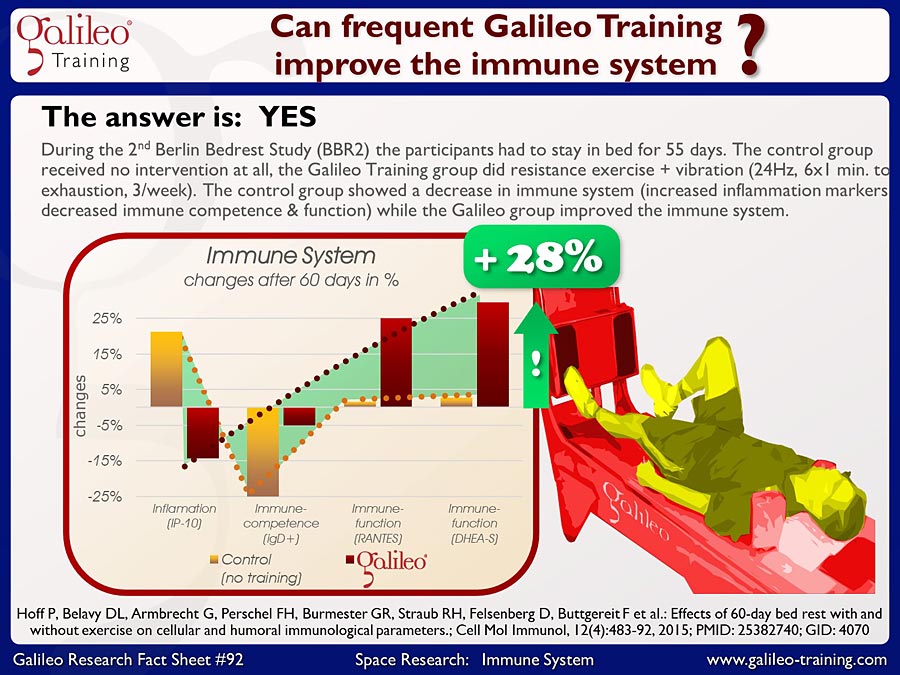Galileo Research Facts No. 93: Can 5*10 min./week Galileo Training prevent loss of muscle function during 55 days bedrest?


During the 1st Berlin Bedrest Study (#BBR1) young men had to stay in bed completely for 55 days (Including shower, toilet and the Galileo exercises). As usual in such studies the control group did not receive any training while the Galileo Group received intense Galileo Training with high loads (5* 10 minutes per week, 12-26Hz, extra loading of up to 130% of body weight).
In direct comparison before and after the bedrest phase (directly after getting out of bed) the control group showed a loss of up to 28% of muscle function in jumping (force, power, jumping height). The Galileo Group could compensate this loss almost completely. The second Berlin Bedrest study (#BBR2) showed similar results (#GRFS69, #GRFS87, #GRFS90, #GRFS127, #GRFS145, #GRFS147) – here less but more intense Galileo Training was used and the muscle function could even be improved. Both studies could almost compensate all negative effects on bone loss at the same time.
Considering the short training time (in this study 50 minutes per week) this is quite remarkable since Astronauts on the ISS currently train up to two hours a day and still show massive loss in muscle and bone during long-term missions – Another proof of how efficient Galileo Training can be.
#GRFS93 #GalileoTraining #MechnoStimulation #GalileoSpace #Space #BedRest #MuscleFunction #CMJ #JumpHeight #JumpPower #Force #VibrationTraining
The verdict of our customers: Excellent
4.7 out of 5 stars based on 868 reviews
Since 1996 we support our Galileo® customers worldwide.
Development and manufacturing in Germany.
10-year service guarantee &
5-year warranty for private customers in Germany.
Unlimited user support for all Galileo customers.
Effectiveness demonstrated in over 500 scientiffic publications.